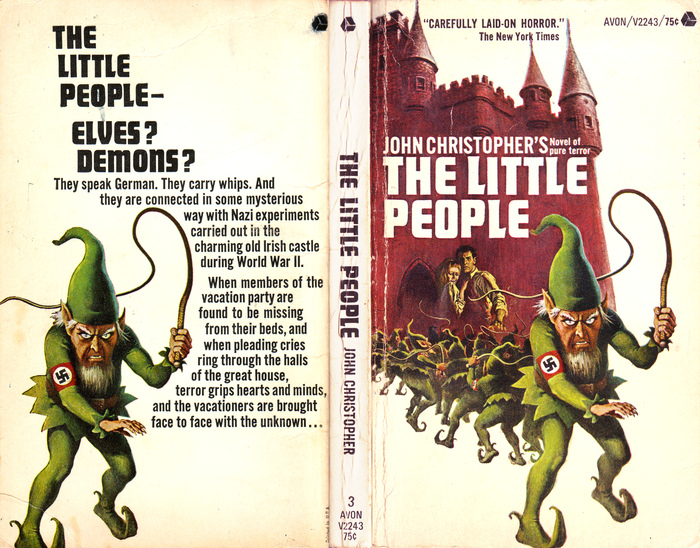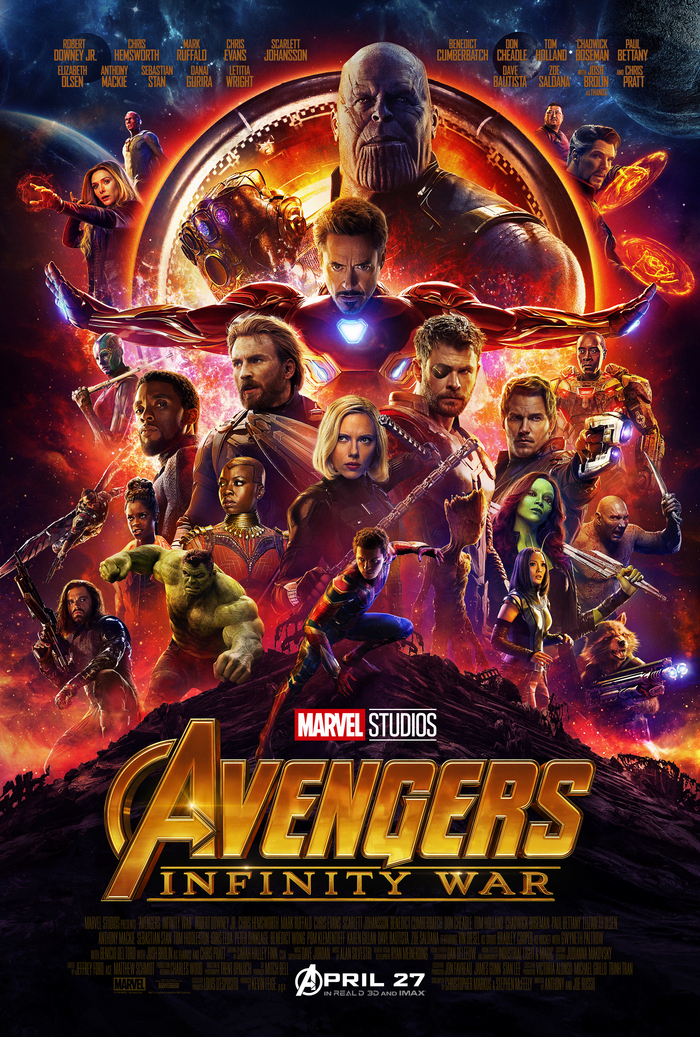I’m sad to say that until this novel, I had not read any of Kim Stanley Robinson’s previous works. I’ve had Red Mars in my queue for a long time, but since New York 2140 was nominated for this year’s Hugo ballot, I figured it was finally time to bite the bullet. Unfortunately, I don’t think this was a particularly good introduction.
Set in a future where the world has endured two sudden, catastrophic “pulses” of rising sea levels, this novel focuses mostly on New York City, which has managed to adapt and survive as a sorta New Venice, using various high-tech solutions to cope with the water levels. The story, such as it is, follows several residents of the MetLife Tower on Madison Square as they go about their lives. The Met is run as a co-op, generating food and power as well as providing shelter.
At first, it seems like there’s a buildup of plot elements that will all come together in the end, but it ultimately doesn’t go in that direction. At least, not in as satisfying a way as I was expecting from some of the initial chapters. There’s two programmers, Mutt & Jeff, who want to muck with various finance laws/code and get kidnapped. Inspector Gen is a police officer investigating their disappearance, as well as some other mysterious stuff about security contractors. Two young kids, Roberto and Stefan, are engaging in an old-fashioned sunken treasure hunt. The Met is run by social workers like Charlotte, who is trying to fend off a purchase offer for the building. Vlade is the building manager, and he’s finding weird little malfunctions in some of the water-proofing tech of the building as well as being the general glue of all the folks living in the building. Franklin is a hedge fund manager who is anticipating a housing bubble burst and trying to position himself to profit. He’s also trying to get into a woman’s pants (this gets tedious and belies future twists in his story). Amelia is a ditzy social media star and environmental activist that lives in the Met, but spends most of her time in a dirigible helping animal migrations. Like any story with a large ensemble cast, some of these plot threads are more enjoyable than others, but it’s all set up reasonably well and it leads to a sense of anticipation.
Unfortunately, most of these plot threads simply fizzle out in an anti-climactic fashion. Roberto and Stefan find their sunken treasure quickly and easily, enlist Vlade and his ex to actually extract the treasure. During that process, they inadvertently stumble on the location where Mutt & Jeff were being held. Gen is pleased by that discovery, but it doesn’t lead to much for her investigation, which is unglamorous and slow moving. Franklin is enlisted to launder the treasure, but that also goes smoothly. Amelia’s initial efforts to move polar bears to a better climate is literally nuked by environmentalists? But somehow that’s also anti-climactic, with little in the way of fallout (both literally and figuratively). Later, there’s a hurricane that hits New York that has some mildly compelling episodes, but the drama that is derived from that feels half-baked and rushed. It becomes clear that it’s only there to provide a thin excuse for the blatant wish fulfillment of the finale. That finale, which involves a large proportion of the population simply not paying their bills, is probably the most politically partisan part of the story and the most likely to annoy (I was not exactly on board with this plan, which seemed to somehow go off without a hitch and with unconvincing simplicity). It all hinges on a lot of coincidences and unbelievable changes of heart, such as Franklin’s Grinch-like transformation (which did not feel earned). Aside from Vlade and maybe the two kids, I didn’t particularly find the characters very engaging either, but rather more like partisan plot delivery devices.
Mostly the novel is basically about how pissed off Kim Stanley Robinson is about the 2008 economic crisis. And like, that’s not an unsympathetic stance, but this novel doesn’t really provide much in the way of new perspectives on the matter. In fact, the longer the novel goes on, the more clear it becomes that everything he’s set up in the worldbuilding is there to comment on our present-day economic ills (or those of 2008). Again, that isn’t necessarily a problem. Great art can be manipulative, but in bad art, you can see the strings being pulled, and that’s what’s going on here. This can be subjective, to be sure, but it was not successful for me. Plus, we’re already steeped in critiques of capitalism or explanations for 2008. I mean, if you weren’t familiar with this stuff, this book might read much better, but while I’m no expert in the matter, I didn’t find much here to chew on that isn’t better explored in popular non-fiction. The bald, tailor-made way in which Robinson patterns the issues affecting New York in 2140 means that there’s not much new to learn about finance here. Add to that a disjointed narrative that isn’t really interested in being an actual story, and you’re left with a simple screed. A valued one, perhaps, but a screed nonetheless.
This is most obvious in the chapters attributed to a nameless “citizen”, which are basically didactic and condescending history lectures from an angry standin for Robinson. Some of the information imparted in these rants are actually interesting and get at the technical aspects of the worldbuilding, but the tone is generally offputting and weird. At one point, this citizen even urges us to skip these chapters if we’re not interested in them, which feels like a bit of self-awareness on Robinson’s part, but it’s also a confounding notion. Being self-aware of your bad choices does not exactly excuse them (this sort of thing works best in very limited doses). Look, science fiction is infamous for its info-dumps and I’m usually pretty forgiving of such, but this is pretty excessive. (At one point, the citizen is whining about how most of the population didn’t see the whole climate change problem coming, or if they did, they didn’t do anything about it; then he mentions that only some scientists and science fiction writers were ahead of the curve, which just felt kinda smug on Robinson’s part.)
I kept thinking about a couple of other books while reading this one. First, I thought a lot about Cryptonomicon. If you ever pinned me down and forced me to pick a favorite book (an impossible task!), it would probably be Cryptonomicon. And I do see a lot of surface similarities here. There’s no CliFi in that book, but lots of speculations about finance, treasure-hunts, money-laundering, and so on. It’s also a big ensemble piece with multiple viewpoint characters and a sorta disjointed narrative featuring tons of digressions and yes, info-dumps. I love the book, but I have yet to meet a person in real life who has read it and loved it (there are plenty on the internet who do, to be sure, but still). I kept wondering if my experience reading New York 2140 was like my real-life friends’ experience reading Cryptonomicon. As New York 2140 progresses and diverges more clearly from what Cryptonomicon is doing, this feeling lessened, but I thought it an interesting observation. Ultimately, I think Cryptonomicon tightened its various plot threads as it went on, while New York 2140 slowly unraveled. It also speculated on new technology (cryto-currency and data havens), which put a spin on economics that was new and interesting and thus not as well covered by non-fiction of the time.
The other book I kept thinking of was Neptune’s Brood. Charlie Stross is pretty clearly not a fan of things like capitalism and debt (and I’m sure he was just as upset at the 2008 economic crisis), but he still managed to build a fascinating story around finance (!) that gave me that vaunted Sense of Wonder that great SF can generate. And his message was baked into an entertaining space-opera that plays well as a narrative all on its own. As a result, his book is much more successful at making me think about our current day woes than New York 2140, which strikes me as a fictional rehashing of Paul Krugman or Thomas Piketty or whatever. I suppose Robinson was trying to use climate change as the mutator of economic ideas, but that’s not as interesting or effective as Stross’ use of Slow Debt and planetary colonization. Or, you know, non-fiction about climate change and finance today.
Science fiction is often used to comment on present day ills, but the way Robinson constructs his critique doesn’t work. I’m not really sure who this book is for. It won’t convince political opponents, that’s for sure. Moderates might take more from it, but I suspect they’d have my main complaint: If I want to learn more about 2008 (or climate change), there are far better and more accessible non-fictional avenues to pursue, and New York 2140 is nowhere near abstracted enough to be more broadly applicable (a feat that both Cryptonomicon and Neptune’s Brood managed because they abstracted and generalized to an interesting degree). I suspect people who are more aligned with Robinson’s politics would like it, but that means this is just preaching to the choir. I suppose there’s value in that, but perhaps not “Best Science Fiction Novel of the Year” value.
For all my whinging about this book, it wasn’t particularly difficult to read and in fact flowed pretty smoothly. It was certainly overlong, the pacing was inconsistent, and more episodic than I’d want, but there were plenty of interesting ideas and page-turning moments. They just didn’t add up to a cohesive whole for me. I think you can tell that this will be towards the bottom of my Hugo ballot. At this point, I’ve read all the novels (review of Six Wakes is incoming; spoiler alert, I liked that a lot more than this…). I’m not entirely sure what will be at the top, but there’s a pretty clear list of three tiers for me (and New York 2140, sadly, is on that bottom tier).

